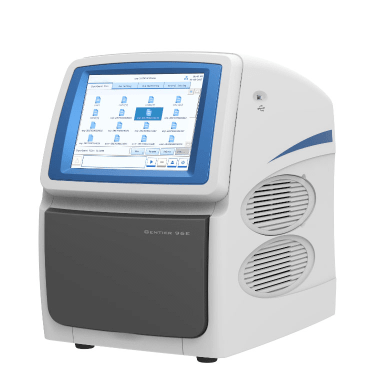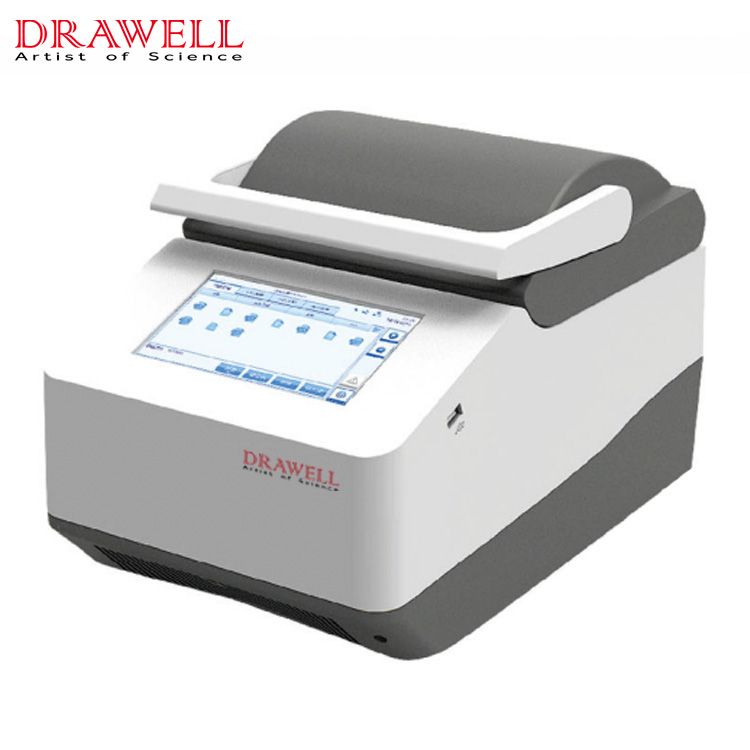Polymerase Chain Reaction (PCR) stands as a cornerstone in molecular biology, offering scientists the ability to amplify specific DNA segments with unmatched precision and efficiency. At the heart of this transformative technique lies Taq polymerase, an enzyme extracted from the extremophile bacterium Thermus aquaticus. With its unique attributes, Taq polymerase has emerged as a fundamental component in molecular biology. This article delves into the reasons behind the widespread utilization of Taq polymerase in PCR and its indispensable role in DNA amplification.

Heat Stability of Taq Polymerase
Taq polymerase's remarkable heat stability renders it ideal for PCR applications. Traditional DNA polymerases, akin to those found in human cells, denature at temperatures surpassing 60-70°C (140-158°F). However, Taq polymerase, originating from T. aquaticus thriving in hot springs with temperatures up to 70°C, has evolved to withstand such extreme conditions. This inherent heat resistance allows Taq polymerase to remain active throughout the temperature cycles of PCR, ensuring efficient DNA amplification.
DNA Synthesis by Taq Polymerase
During the extension phase of PCR, Taq polymerase catalyzes DNA synthesis. Upon denaturation of the DNA template and annealing of primers, Taq polymerase utilizes the single-stranded DNA template to generate a complementary DNA strand by incorporating nucleotides. Through a series of steps including binding, nucleotide addition, phosphodiester bond formation, and processivity, Taq polymerase synthesizes a new DNA strand, resulting in the amplification of the target DNA fragment.
Exonuclease Activity of Taq Polymerase
Taq polymerase's exonuclease activity enhances DNA replication fidelity by proofreading and correcting misincorporated nucleotides. Upon recognizing a misincorporated nucleotide, Taq polymerase employs its exonucleolytic activity to remove the erroneous nucleotide from the growing DNA chain. Subsequently, Taq polymerase resumes DNA synthesis, ensuring the accurate replication of the DNA template.
Compatibility of Taq Polymerase with PCR Components
Taq polymerase's compatibility with various PCR components simplifies experimental workflows and enhances reproducibility. It efficiently binds to primers during annealing, incorporates nucleotides during extension, and remains stable throughout thermal cycling. Moreover, Taq polymerase exhibits compatibility with PCR buffers, Mg2+ ions, and other additives, ensuring consistent performance across diverse experimental conditions.

Commercial Availability of Taq Polymerase
Taq polymerase is commercially available in various formats, catering to diverse experimental needs. Biotechnology companies offer standalone enzymes, master mixes, and complete PCR kits, providing researchers with flexible options. Furthermore, specialized formulations tailored for specific PCR applications, stringent quality control measures, and widespread availability have cemented Taq polymerase's role as a ubiquitous tool in molecular biology research and diagnostics.
In summary, Taq polymerase has revolutionized molecular biology by offering scientists a reliable and efficient means of DNA amplification. Its unique properties, including heat stability, DNA synthesis capabilities, exonuclease activity, compatibility with PCR components, and commercial availability, underscore its indispensable role in PCR and molecular biology as a whole.

